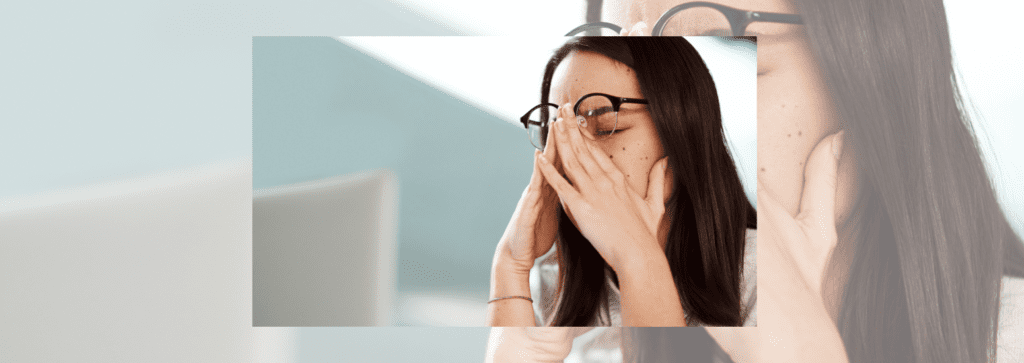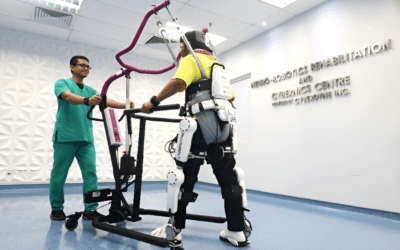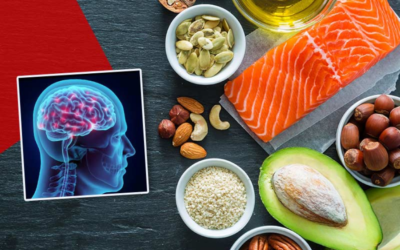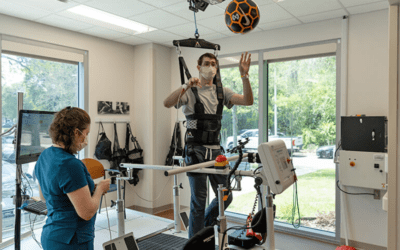“Essential Guide for Caregivers of Migraine Patients“, providing caregivers with insights into migraine management, triggers, and coping strategies. It offers practical tips for supporting individuals during migraine attacks and fostering effective communication. By empowering caregivers with knowledge, the handbook enhances the overall care and quality of life for those affected by migraines.
What is Migraine?
Migraine is a neurological condition characterized by recurrent, severe headaches often accompanied by symptoms such as nausea, vomiting, and sensitivity to light and sound. These headaches can last from a few hours to several days and may be preceded by an aura, which includes visual disturbances or sensory changes. The exact cause of migraines is not fully understood, but they are believed to involve genetic, environmental, and neurochemical factors. Migraine attacks can significantly impact daily activities and quality of life, requiring effective management strategies for relief.
Understanding Triggers of Migraine:

Understanding migraine triggers is essential for effective management and prevention. Common triggers include:
1. Dietary Factors
- Certain foods and beverages, such as aged cheeses, processed meats, caffeine, alcohol, and foods containing MSG, can provoke migraines.
2. Hormonal Changes
- Fluctuations in hormones, particularly in women during menstrual cycles, pregnancy, or menopause, can trigger migraines.
3. Stress and Emotional Factors
- Stress, anxiety, and emotional upheaval can lead to the onset of migraines. Conversely, post-stress relief can also trigger headaches.
4. Sleep Patterns
- Changes in sleep patterns, such as insufficient sleep or oversleeping, can act as triggers. Irregular sleep schedules may also contribute.
5. Environmental Factors
- Bright lights, loud noises, strong odors, and changes in weather or barometric pressure can trigger migraines in susceptible individuals.
6. Physical Exertion
- Intense physical activity or exercise, especially if sudden or strenuous, can lead to migraines.
7. Medications
- Some medications, such as oral contraceptives or certain vasodilators, can trigger migraines in some individuals.
8. Dehydration
- Insufficient fluid intake can lead to dehydration, which is a known trigger for migraines.
Identifying personal migraine triggers is crucial for developing effective prevention strategies. Keeping a headache diary can help individuals track patterns and identify specific triggers, enabling them to make lifestyle adjustments and minimize the frequency and severity of migraine attacks.
Support During Migraine Attacks:
Supporting someone during a migraine attack is crucial for their comfort and recovery. Here are effective ways caregivers can provide support:
1. Create a Calm Environment
Dim the lights, minimize noise, and remove any strong odors to create a soothing space. A quiet, dark room can help alleviate symptoms.
2. Help with Pain Relief
Assist in finding and administering prescribed medications or over-the-counter pain relievers. Ensure the individual stays hydrated and offer cold compresses for their head.
3. Encourage Rest
Encourage the person to lie down and rest in a comfortable position. Offer pillows and blankets to help them relax.
4. Provide Emotional Support
Be patient and understanding, offering reassurance without being dismissive of their pain. Listen to their needs and validate their experience.
5. Monitor Symptoms
Keep track of the duration and severity of the migraine, noting any accompanying symptoms. This information can be valuable for future medical consultations.
6. Assist with Activities
Help with daily tasks or responsibilities that may be overwhelming during an attack, allowing them to focus on recovery.
7. Encourage Communication
If they wish, help them communicate their needs to family or friends, ensuring they feel supported and understood.
Being a supportive presence during migraine attacks can significantly improve the individual’s experience. Through understanding, empathy, and practical assistance, caregivers can play a vital role in helping their loved ones navigate the challenges of migraines.
Encouraging Healthy Habits:
Encouraging healthy habits specifically tailored for individuals with migraines can help reduce the frequency and severity of attacks. Here are some effective strategies:
1. Maintain a Regular Sleep Schedule
Encourage consistent sleep patterns by going to bed and waking up at the same time each day. Quality sleep can significantly impact migraine management.
2. Stay Hydrated
Emphasize the importance of drinking plenty of water throughout the day. Dehydration is a common trigger for migraines, so encourage regular fluid intake.
3. Adopt a Balanced Diet
Promote a diet rich in whole foods, including fruits, vegetables, whole grains, and lean proteins. Keeping a food diary can help identify specific dietary triggers.
4. Identify and Avoid Triggers
Help individuals recognize personal migraine triggers, such as certain foods, stress, or environmental factors. Developing strategies to avoid these triggers can be beneficial.
5. Regular Physical Activity
Encourage moderate, regular exercise, such as walking, swimming, or yoga. Physical activity can reduce stress and improve overall health, but it’s essential to avoid intense workouts that might trigger migraines.
6. Manage Stress Effectively
Introduce stress-reduction techniques like mindfulness, meditation, or deep breathing exercises. Stress is a significant migraine trigger for many individuals.
7. Limit Caffeine and Alcohol
Encourage moderation in caffeine consumption and limit alcohol intake, as both can act as triggers for some people.
8. Establish a Relaxation Routine
Promote activities that promote relaxation, such as gentle yoga, reading, or listening to calming music, which can help reduce stress and tension.
9. Regular Check-ups
Encourage routine medical appointments to monitor migraine management and discuss treatment options with healthcare providers.
By fostering these healthy habits, individuals with migraines can enhance their quality of life and potentially reduce the frequency and intensity of their attacks. Support and education from caregivers and loved ones are vital in helping them adopt and maintain these practices.
Monitoring Medications for Migraine:
Monitoring medications for migraine is crucial for effective management and minimizing side effects. Here are key aspects to consider:

1. Regular Communication with Healthcare Providers
Maintain open lines of communication with healthcare professionals to discuss medication effectiveness, side effects, and any changes in migraine patterns.
2. Keep a Migraine Diary
Encourage individuals to keep a detailed migraine diary, noting the frequency, duration, and intensity of attacks, as well as any associated symptoms and medication taken. This information can help identify triggers and evaluate treatment effectiveness.
3. Adherence to Prescribed Regimens
Emphasize the importance of following the prescribed medication regimen, including preventive and acute treatments. Non-adherence can lead to increased frequency and severity of migraines.
4. Monitor Side Effects
Be vigilant for any side effects from medications, such as drowsiness, gastrointestinal issues, or cognitive changes. Report these to a healthcare provider for evaluation and potential adjustments.
5. Evaluate Effectiveness
Regularly assess how well the medications are controlling migraine symptoms. If attacks persist or worsen, it may be necessary to adjust dosages or switch medications.
6. Consider Lifestyle Factors
Encourage a holistic approach by considering lifestyle factors, such as diet, exercise, and stress management, which can complement medication effectiveness.
Communication with Health Care Providers:
Effective communication with healthcare providers is essential for migraine patients to ensure proper diagnosis, treatment, and management. Patients should openly discuss their symptoms, triggers, medication effectiveness, and any side effects they experience. This collaborative approach enables tailored treatment plans that enhance the quality of life and reduce the frequency and severity of migraine attacks.
Encouraging Self-Care and Staying Informed in Migraine:
- Practice Self-Care Techniques
- Encourage individuals to engage in self-care practices such as relaxation techniques, mindfulness, and gentle exercises like yoga or stretching. These can help reduce stress and promote overall well-being.
- Educate About Triggers
- Provide resources to help individuals identify and understand their personal migraine triggers, whether they are dietary, environmental, or emotional. Keeping a migraine diary can be an effective tool for tracking these patterns.
- Stay Informed About Treatments
- Encourage patients to stay updated on the latest research and treatment options for migraines. Knowledge about new medications, therapies, and lifestyle changes can empower them to make informed decisions.
- Establish a Support Network
- Highlight the importance of connecting with support groups or communities for individuals with migraines. Sharing experiences and strategies can provide emotional support and practical advice.
- Promote Regular Check-Ups
- Encourage regular consultations with healthcare providers to discuss treatment efficacy, side effects, and any necessary adjustments to the management plan.
- Foster Healthy Lifestyle Choices
- Emphasize the role of a balanced diet, regular exercise, and adequate hydration in managing migraines. These lifestyle choices can significantly impact migraine frequency and severity.
By promoting self-care and encouraging individuals to stay informed, migraine patients can take an active role in managing their condition. Empowering them with knowledge and support can lead to better outcomes and improved quality of life.
Essential Guide for Caregivers of Migraine Patients – serves as a resource, equipping caregivers with the knowledge and tools to provide effective support. By fostering understanding and communication, this handbook enhances the caregiving experience and improves the quality of life for those affected by migraines.



